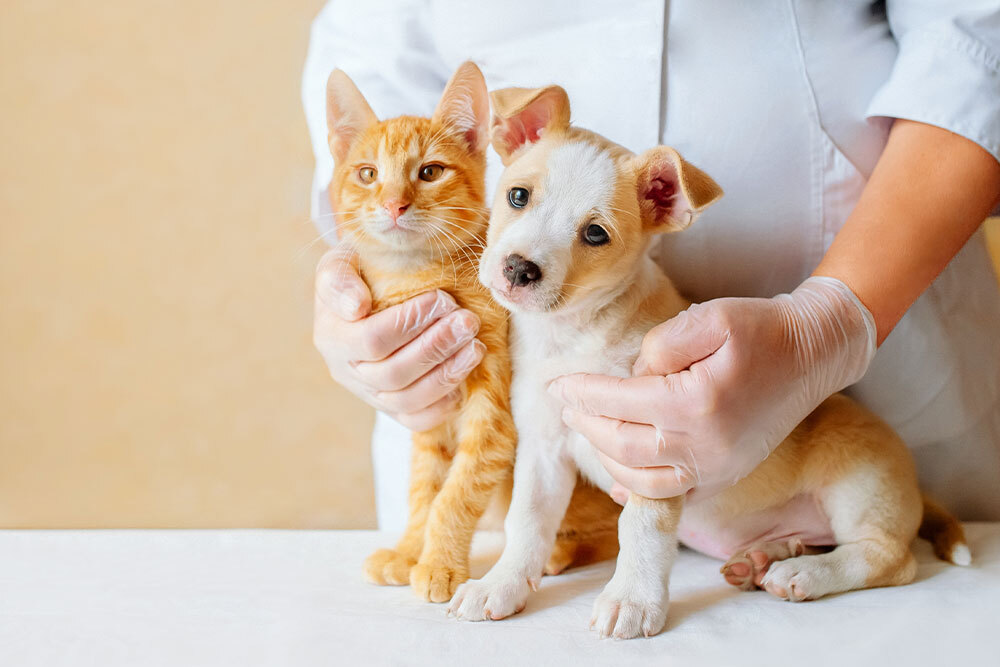Welcoming a new puppy or kitten into your home is an exciting and joyful experience—but it also comes with important responsibilities. These young pets are particularly vulnerable to accidents, illnesses, and emergencies due to:
- Underdeveloped immune systems
- Natural curiosity and exploratory behaviors
- Small size, which can make even minor issues escalate quickly
At Tender Touch Animal Hospital in Kingston, Washington, we understand the unique needs of puppies and kittens. This guide will help you recognize common emergencies, understand when to seek urgent veterinary care, and learn how to provide essential first aid before professional help is available.
Recognizing Emergencies in Young Pets
Emergency Signs You Should Never Ignore
Call your vet or visit an emergency clinic immediately if your puppy or kitten shows any of the following:
- Difficulty breathing or choking
- Loss of consciousness or seizures
- Persistent vomiting or diarrhea
- Bleeding, swelling, or visible wounds
- Ingestion of toxic substances or foreign objects
Contact: ASPCA Poison Control Guide
Learn more: Emergency Care Guidelines – ASPCA
Common Emergencies in Puppies and Kittens
Choking and Airway Obstruction
Common Causes:
- Chewing on small toys or bones
- Eating too quickly
Warning Signs:
- Gagging, retching
- Pawing at the mouth
- Blue gums or collapse
What to Do:
Perform the dog Heimlich maneuver if trained, and seek immediate veterinary care.
Toxic Ingestion
Common Toxins:
- Chocolate, grapes, onions, xylitol
- Human medications and household cleaners
- Certain houseplants
Read more: ASPCA Toxic and Non-Toxic Plant List
Symptoms:
- Vomiting, diarrhea
- Tremors, seizures
- Lethargy or unresponsiveness
Immediate Action:
Call ASPCA Poison Control or your veterinarian. Do not induce vomiting unless instructed.
Trauma: Falls, Bites, Car Accidents
Risk Factors:
- Climbing or jumping from furniture
- Encounters with larger pets or wild animals
- Escaping into unsafe environments
Signs of Injury:
- Limping or inability to move
- Swelling or bleeding
- Yelping or signs of pain
Keep your pet immobilized and calm, and head straight to an emergency clinic.
Heatstroke and Hypothermia
Heatstroke:
- Panting, drooling, collapse
- Move to a cool area and offer water
- Seek emergency care immediately
Hypothermia:
- Shivering, cold ears or paws, lethargy
- Warm the pet gradually and call your vet
Vomiting and Diarrhea
While a single episode isn’t always alarming, persistent gastrointestinal symptoms are dangerous in young pets.
Warning Signs:
- Blood in stool or vomit
- Vomiting/diarrhea for over 24 hours
- Signs of dehydration (sunken eyes, dry gums)
Seizures and Neurological Symptoms
Causes:
- Infections (e.g. distemper)
- Congenital brain abnormalities
- Exposure to toxins
Symptoms:
- Muscle twitching, collapse
- Uncontrollable shaking
- Foaming at the mouth
Ensure your pet’s safety, avoid touching their mouth, and call your vet immediately.
Breathing Problems
Causes:
- Respiratory infections, asthma, or allergies
- Blocked nasal passages or airway inflammation
- Heart disease
Warning Signs:
- Open-mouth breathing
- Wheezing, coughing
- Blue or pale gums
This is a medical emergency. Keep your pet calm and seek immediate care.
Eye Injuries
Scratches or foreign objects in the eye can lead to infection and vision loss if untreated.
Symptoms:
- Redness, squinting, or discharge
- Rubbing the face on furniture
- Swollen or bulging eyes
Avoid touching the eye and get your pet evaluated quickly.
What to Do at Home: First Aid and Transport
Create a Pet Emergency Kit
Include the following items in a home emergency kit:
- Contact info for Tender Touch Animal Hospital
- Gauze, antiseptic wipes, bandage tape
- Tweezers, scissors, gloves
- Digital thermometer
- Muzzle (for safety if pet is in pain)
Consider taking one of the Red Cross Cat and Dog First Aid Classes for extra preparation.
Transporting an Injured Pet
- Use a crate or sturdy box with padding
- Keep them warm and quiet
- Support head and spine if trauma is suspected
- Keep them from licking or chewing on their injury
Preventing Emergencies in Puppies and Kittens
Pet-Proofing Your Home
Puppies and kittens are curious by nature. Make sure your home is safe by:
- Keeping hazardous foods and chemicals out of reach
- Securing cords and breakable objects
- Blocking access to high ledges or stairs
- Keeping trashcans and food waste inaccessible
More tips:
Essential Pet-Proofing Tips – AAHA
Preventing Pet Emergencies – UW Madison Vet School
Financial Preparedness: Pet Insurance
Emergency care can be expensive. Consider enrolling in pet insurance to help with unexpected costs.
Learn More:
What Is Pet Insurance? – Pawlicy
Pet Insurance Benefits – AAHA
Cost of Owning a Dog – MarketWatch

Be Prepared. Stay Calm. Act Fast.
Emergencies with puppies and kittens are scary—but preparation makes all the difference. Know the warning signs, have your vet’s number on hand, and don’t wait to act when something feels wrong.
If you suspect your pet is in distress, contact Tender Touch Animal Hospital immediately. Our team is ready to provide life-saving care with compassion and expertise.







Leave A Comment